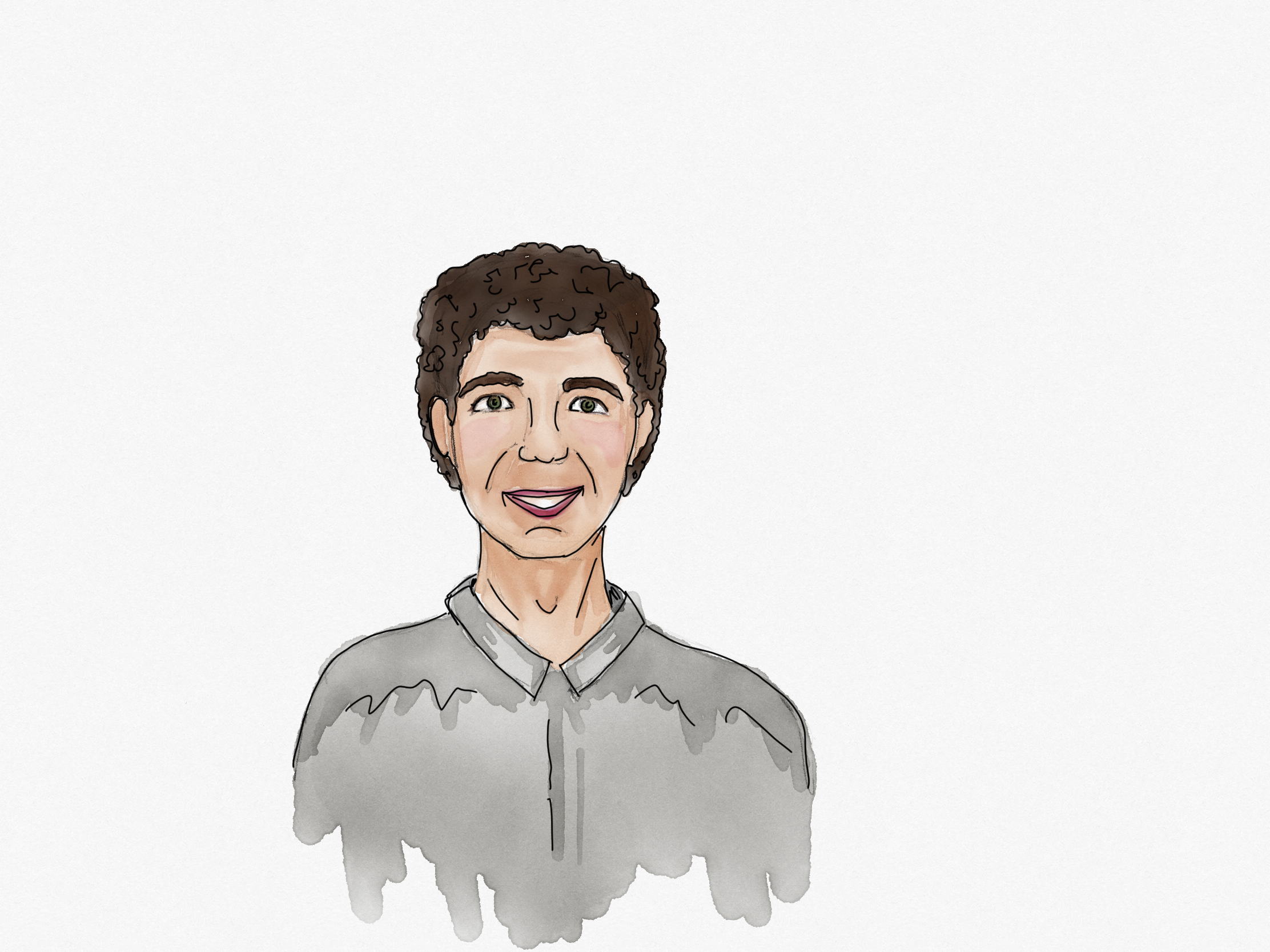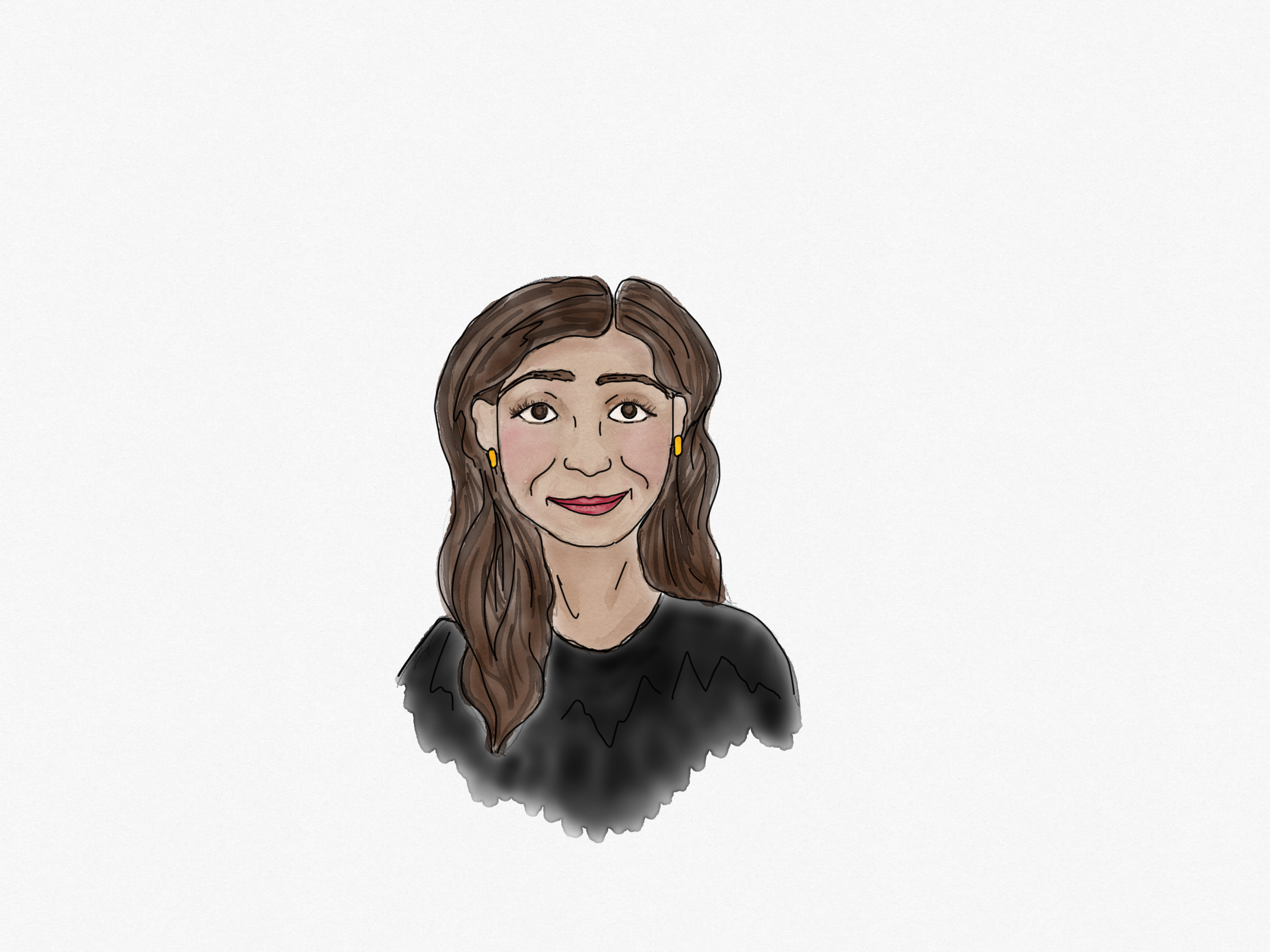A Day In The Life of a Western Psychiatry Resident
ANDREW – PGY1
Hi, my name is Andrew, and I’m a PGY1 in Psychiatry at Western University. In our first year, our time is split between off-service rotations, electives, and mandatory psychiatry rotations. We each rotate through two blocks of neurology, one block of emergency medicine, one block of family medicine, and then a medicine selective. For my medicine selective, I chose endocrinology, as we often see patients with diabetes, especially in populations with psychosis. You also get two electives to do any rotation you want… Yes, even CTU!
I usually wake up around 7:30 am so I can get in breakfast and coffee before I leave the house. I find that waking up a bit earlier in order to feed my body - and my caffeine habit - really pays dividends for my energy. On Thursdays, we have our academic half-day, which these days takes place via Zoom. This is a time when I can leisurely sip my coffee while covering introductory psych topics, as well as see my co-residents without masks.
Clinical work on the inpatient psychiatry ward usually starts with running the list of patients around 8:30 am. After this, we divide up responsibilities for the day and check-in with our preceptors. This is usually a good opportunity to talk about things we’d like to work on as learners and discuss topics that might be relevant for case-based teaching later in the day. Depending on the supervisor, we then proceed independently or sometimes with supervision. While I appreciate independence and the practice of learning on the fly, there’s great insight gained by working under direct supervision. Our staff has a way of constructively evaluating our interviewing and formulation, which I feel has been very helpful for my learning at this stage.
After seeing patients, we have time to work on our notes before touching base with the rest of our team. Often this includes nurses, social workers, and pharmacists. Once we’ve come up with a multidisciplinary management plan, it’s back to see the patients and figure out the best way to implement the steps. Usually, this wraps up by about 3-4:30 pm on psychiatry rotations, and you have the rest of the day to do whatever you choose! Given that we average about 3 call shifts per block in R1, there is plenty of time to do reading, catch up on hobbies, or zoom with our friends and family.
I personally like to unwind with a good fiction book, or by playing some ps4, and then I look up a new recipe to cook for dinner that evening. But sometimes, we have distanced hangouts too. So far this year, we’ve had an afternoon off to do apple picking and even a Zoom paint-night! These have been great opportunities to casually interact with all the years in the Psych program. I’m grateful to have matched here for Psychiatry, and I can’t wait to learn more about psychiatry and my co-residents in the coming years.

RAVNEET – PGY1
Hi there! My name is Ravneet Kaur Ghumman, and I am 6 months into PGY1. Though we’re in Psychiatry, our first year is split between Psychiatry and Medicine selectives and electives. Western provides a wonderful opportunity for incoming residents to ease our way into the program, with the entire first month as a dedicated Orientation Block – giving us time to get to know the city, various training sites, and community supports. This year was quite different due to the COVID-19 pandemic, as orientation was mainly done by Zoom, including meeting my fellow First Years! After two weeks of small group and lecture-based orientation, we were assigned to different preceptors for the last two weeks to ease us into providing patient care as residents. Writing my first prescription and faxing it off to the pharmacy was one of my most memorable experiences! I was glad I didn’t have to fumble for my CPSO number (luckily, it was already printed on the prescription). For the first two months, Western University provides all residents with a Transition to Residency lecture series, which covers a high-yield medicine topic each week. In general, Thursdays are considered academic days for Psychiatry. In first year, we have half-days; teaching in the morning and then attending to our respective clinical duties in the afternoon.
I spent the first three months in Psychiatry-specific rotations. I rotated through the Child and Adolescent unit, our Centralized Emergency Psychiatric Services (CEPS) in the emergency department, and the Adult Inpatient unit. While we are on service, we are also expected to be on call. As first years, we were graciously allowed to ease into call as well, starting with shadow call, to half-call, to full overnight call. It was quite a daunting experience at first, but I have felt incredibly supported throughout all of my call shifts. I know I speak for my fellow first years when I say I have never been afraid or worried to ask for help because everyone is so accessible and eager to foster our learning. It has been a bit of an adjustment, but any questions I have are answered promptly by the PGE office staff, who are awesome! I was quite nervous about being off-service but so far haven’t had a bad experience.
My days vary by where I am and whether I am working in a virtual clinic or on-site. Most days that I am on-site, I begin at 8:30 am. I am currently on Addictions. I spend most of my time at Parkwood Institute with the Concurrent Disorders Program. What I appreciate about Psychiatry is that we work very closely with our allied health team members in order to be able to provide comprehensive care to patients. The team at Parkwood is comprised of Psychiatrists, Occupational Therapists, Nurses, Social Workers, and Psychologists. I have been able to see patients in both an inpatient and outpatient capacity as well as in person and virtually.
My time in residency has been very brief, but I have been welcomed by Western and the Psychiatry program. With the pandemic changing how we practice medicine and how we will inevitably practice Psychiatry, I’m glad I’m currently in a program that strives to be supportive and approachable. I look forward to the next 4.5 years!”

YOEL – PGY2
Hello, prospective psychiatry residents!
My name is Yoel, and I’m a PGY-2 at Western Psychiatry. Here’s what a day in my life looks like!
I am currently rotating through adult inpatient psychiatry at Victoria Hospital. My day begins at around 07:30, when I wake up, enjoy a shot of espresso and listen to an audiobook or podcast as I gear-up for the day. My commute is 10 minutes, and I arrive at Victoria hospital at 08:30.
Upon arrival, I get together with a clinical clerk and pre-round on our patients to determine if there have been any overnight issues or new admissions. As second-year residents, we typically carry anywhere from 4-8 patients and can serve in a junior attending capacity, with a high degree of autonomy in patient care and supervising clinical clerks.
I then see patients and implement psychotherapeutic techniques such as supportive psychotherapy into each encounter and adjust or add medications based on the clinical assessment. Following this, I discuss cases with my attending supervisor on site, who is always open, approachable, and helpful. They also promote the evolution into an attending role by encouraging residents to lead interdisciplinary rounds or even Consent and Capacity Board hearings!
Days can be fast-paced, but there is usually plenty of time for teaching, engagement with allied health, grabbing lunch, all while wrapping up by 4:30 pm!
Formal psychotherapy supervision begins in PGY-2, and we are responsible for seeing several cases from start to finish. I am excited to initiate my cases and hone my psychotherapy skills in the new year as I transition to my outpatient rotations.
What I’ve enjoyed the most from PGY-2 has been developing my core skills in both psychotherapy and general psychiatric care under a variety of unique supervisors each with vast knowledge and their own teaching pearls.
When I’m not seeing inpatients, I’m helping cover our Centralized Emergency Psychiatry Service (CEPS) on-call. Being on-call means covering the emergency department, consult liaison, and ward issues, so you are guaranteed lots of action and learning. Some say PGY-2 is the hardest year since the number of call shifts per month is at its peak (3-4 shifts per month), and you are given more graduated responsibility. This includes holding the pager and delegating/prioritizing clinical work within the CEPS team. While this can be challenging, I personally find it rewarding to see myself and my colleagues rise to the occasion as increasingly competent clinicians and leaders.
We’ve also started a monthly process group for PGY-2 where we talk about how training is going and discuss challenging cases, usually from our on-call experience in CEPS. There, we lean on each other for support and learn from each other’s wisdom, often asking ourselves, “how might I approach the situation differently next time?” I am grateful to work with such talented, supportive, and compassionate co-residents.
We are also lucky to have a full day dedicated to didactics every Thursday, featuring lectures covering our broad and rich curriculum, all on ZOOM, due to COVID-19.
I also have the privilege of serving as Assistant-Chief Resident, so my days incorporate a focus on administration, leadership development, and resident wellness. Some afternoons I’ll spend time preparing for monthly resident meetings, planning fun resident retreats, or advocating for resident needs with program and hospital administration.
PGY-2 is also when we start our academic projects. I’ve had the opportunity to partner with clinician educators internationally on a National Neuroscience Education Institute project to further my passion for teaching clinical neuroscience to health care providers.
Prior to COVID-19, I spent every other Thursday evening with the recreational therapy team for the Primary Episode Psychosis program (PEPP) and participated in their “Jam Night,” where I played saxophone and bonded over a shared passion for music within their special community.
I live near Victoria Park, just north of downtown London. In the summer months, the park hosts vibrant weekly festivals, and in the winter months opens an ice-rink surrounded by beautifully lit trees. London also has great coffee shops and cafes that will quickly become your go-to spots. My favourite is Locomotive Espresso which also has delicious vegan donuts on Fridays.
The nice thing about London is that it is incredibly drivable and few people commute longer than 15 minutes to work every day.
While COVID-19 has certainly impacted how I spend my free time, there are plenty of outdoor activities that I’ve been able to keep up. Biking along the Thames Valley Parkway and hiking in the Fanshawe Conservation area are relaxing weekend activities. The Pinery Provincial Park, around 1hr away, is also ideal for hiking, especially in the fall! Highlights of my summers have been several beach days with my co-residents at Port Stanley and Grand Bend beaches. And If you happen to crave the big city or have family to visit, Toronto is also a very doable weekend trip!
Ultimately, I’ve found psychiatry residency to allow for a healthy balance both in and out of the hospital, in a mutually enhancing way.
While I know that your choice of residency program takes many other life factors into account, based on your or your family’s unique situation, if you do choose Western, you will be enriched by the community here and develop into compassionate clinicians, leaders, and balanced individuals.
If you have any questions about my experience at Western Psychiatry, please feel free to reach out!

SHAWN – PGY3
The Day Begins…
At 7:00 am, my first alarm goes off. 7:00 am is… optimistic. However, in discovering a need to balance optimism with realism, I have another alarm set for 7:45 am. I am also lucky that I live in an apartment right beside the hospital. I literally walk across a parking lot, and I’m at work. These days, my work is in Geriatric Psychiatry.
Geriatrics…
Along with my current co-resident, I work with my supervisor to provide both inpatient and outpatient care to the elderly – along with a few younger patients who have neurocognitive issues. I am enjoying the rotation more than I had anticipated, and I am discovering a field of psychiatry more complex and diverse than I had imagined.
As someone with varied interests, I have always gravitated to ‘General Adult psychiatry’. However, in geriatrics, I get to see and understand the aging processes experienced by patients with common psychiatric illnesses, such as depression and schizophrenia. Possible major neurocognitive disorders (a.k.a. dementia) can make the differential diagnosis challenging – Is it delirium? Depression? Another medical malady? Additionally, there are those who present with lifelong undiagnosed conditions – for example, the elderly gentleman we saw who had a lifelong diagnosis of schizophrenia, but upon assessment appeared to instead have undiagnosed autism! Or the geriatric patient whom I diagnosed with ADHD. The overlap with the medical aspects of Psychiatry is also common and very interesting and we will see cases of query autoimmune encephalitis and normal pressure hydrocephalus. It is never a dull moment!
My Day…
The morning is dedicated to inpatients, which include those on the general ward as well as the ‘Geriatric Behavioural Unit’ (GBU), dedicated for those with advanced dementia coping with challenging behaviours arising from their illness. My co-resident tends to enjoy the GBU and so he does more of that aspect while I am spending more time with the patients on the regular ward. My supervisor is readily accessible for questions and discussion – be it about which antipsychotic to use or his take on what he calls ‘non-dualistic psychotherapy’... You’ll have to ask him what that means! In the afternoon, I will see some combination of consults and follow-ups. After which, I will head home unless I am on call…
On Call…
I love call. For me, there are many reasons including my interest in the medical aspects of Psychiatry, the challenge of helping those in acute distress, and the camaraderie of working within a team. The team consists of one or two other residents, clinical clerks, mental health nurses, and social workers. One of the first decisions you will make with the co-residents and clinical clerks is what to order in for dinner. Thai food is popular. You will experience the full array of culinary experiences here in London, pandemic or no pandemic!
Call is the busiest aspect of our job. However, in addition to being challenging it can be rewarding and educational. You are the first to evaluate a patient. On the contrary, once you see a patient on the ward, the diagnosis and treatment plan is often already worked out. On the flip side of all this is the enjoyment of life outside of work…
Life in the ‘Forest City’…
Prior to my CaRMs interview here, I had never been to London before. I am now happy to call London my home. It is a large enough city to have a variety of top-notch restaurants and other entertainment that you would expect in a big city. But parts of it are rural enough to allow for hiking in its various parks and wooded areas. During my first summer here, I was amazed to find a different (free) music festival every weekend. I also visited the university’s astronomical observatory for one of their public viewing nights.
Overall, this program has fostered my passion for psychiatry within an environment where there is camaraderie amongst residents and situated in a beautiful and vibrant city. If you have any questions about the residence experience in our program, please feel free to contact me (Shawn.Hudes@lhsc.on.ca) or any of the resident leaders!

ARSH – PGY4
My name is Arsh Kaur Dhaliwal, originally from Calgary and currently a 4th-year psychiatry resident at Western’s London campus. During this academic year, I’ve had some of the most enriching clinical experiences I’ve had throughout all of residency. I started the year by working at the award-winning Prevention and Early Intervention Program for Psychoses (PEPP) Program. As the pandemic hit London, we all quickly adapted to see how we could best support this patient population, especially those who were already isolated in so many ways. The compassion and innovation shown during these times by the PEPP team showed me the durable ways clinical care is transformative. Next, I did a block of Consultation Liaison at the Windsor campus to finish the rest of the rotation at University Hospital in London. I saw growth in not only my knowledge base but also my confidence with the support of incredible supervisors and co-residents.
Currently, I’m working in Concurrent Disorders at Parkwood Mental Health Institute. I see inpatients and outpatients and I’m slowly building my own clinic under the supervision of skilled clinicians. With a keen interest in addictions, I’ve looked forward to this opportunity to use the knowledge and experiences I’ve culminated from outreach work, emergency psychiatry, research, and program development.
My PGY4 year has also been inspiring as my fellow residents and I have worked together and reached new heights in advocacy for our patients and program. It’s been heartening to see so many resident leaders step forward and not only cohesively problem-solve systemic issues but to know we support each other with such tenacity.
Outside of residency, and in the middle of the pandemic, it’s been harder to find the usual ways to decompress, but luckily I’ve been able to discover new hiking trails, record stores, and get to enjoy meals with loved ones in my bubble, which has provided much needed moments of solace and strength.

JULIA – PGY 5
Hey, I’m Julia! I’m a PGY5 who is starting my fellowship in Child and Adolescent (C&A) Psychiatry this year. I love that I get to spend my days talking about school, friends, the latest Tik Tok dance, Paw Patrol, hopes, and dreams with some really awesome kids. As a fellow, I am required to complete six months of inpatient and six months of outpatient C&A psychiatry rotations over the course of my two-year fellowship. One of the great features of our program at Western is the ability to really customize your year depending on your interests.
A typical day for me can look really different depending on what rotation I’m on. If I’m doing my inpatient rotations, I start the day with rounds over the telephone at 0900. Then I might start rounding, or I might have a new assessment to do first. We see patients with a wide variety of concerns, from eating disorders, first manic episodes, complicated psychosocial issues, and more. Often there are family meetings throughout the day, and it’s very rewarding to work with our social work and nursing team to create a care plan for each patient. I usually review with my supervisor after lunch, finish up any outstanding assessments, and call it a day after writing all the notes.
For my outpatient rotations, my day is filled with various follow-up appointments or new assessments, most of them over OTN. There are some positive aspects to being virtual, such as seeing kids in their home where they are most comfortable, and you get a really clear understanding of their family and their environment. That being said, you really miss in-person assessments when they are having fun moving the camera back and forth in a close-up shot of their eyeball - but that is also rich information for your assessment! Some supervisors review with me at the end of the day, and with others, I review cases once a week. All of them are great at making themselves available if I have any questions.
Every two weeks, I see my play therapy case with one of our amazing play therapists. Some days we have so much fun, I worry that it no longer counts as a job! It may look like we are just playing hide and seek or bouncing a ball, but we are also taking careful note of the child and their responses, then using this information to guide our therapy. On other days, I might have a virtual meeting for the research projects I am working on with another C&A fellow to improve care for eating disorder inpatients.
Another special feature of our program at Western is our relationship with CPRI, the Child and Parent Resource Institute. It’s a tertiary-level facility that has specialized outpatient and residential treatment programs for children and is the only one of its kind in Ontario. I am lucky to work with leading experts in the field and participate in specialized assessments and treatments for Autism Spectrum Disorder, impulse control disorders, and intellectual disabilities.
Although my days tend to look more or less the same in terms of structure, the work I do is never boring. The kids keep me on my toes, and I wouldn’t have it any other way! The C&A fellowship program is geared towards my learning, and I believe it will help me grow into the best psychiatrist I can be. All of the physicians and other professionals involved in the program are approachable, kind, and dedicated to learners and their wellness. I feel very fortunate to be a part of our department!









